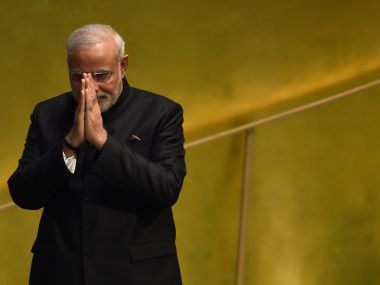In a surprise announcement, the government said on Sunday that the national security advisers (NSAs) of India and Pakistan met in Bangkok to discuss a variety of issues. According to a joint statement put out by the two countries, apart from Ajit Doval and his Pakistani counterpart Nasir Khan Janjua, the foreign secretaries of the two countries also attended the meeting. Apart from Jammu and Kashmir, Sunday’s meeting covered terrorism and peace along the Line of Control. New Delhi showed flexibility on this “broadening” of the agenda, which was one of the key demands of Pakistan, said sources. Two officials familiar with the meeting said Doval called on Pakistan to take steps to rein in operations by anti-India organisations like the Lashkar-e-Taiba and Jaish-e-Mohammad, both of which have stepped up operations in Jammu and Kashmir. With the benefit of hindsight, it can be said the meeting was on the horizon and the two sides had dropped enough hints to indicate discussions were imminent. But the media, thank god for that, failed to pick them up. On November 28, Pakistan’s prime minister Nawaz Sharif reportedly told British premier David Cameron during a meeting in Malta that he was ready for talks with India without any “preconditions.” Three days later, Sharif and Modi had a brief meeting–obviously it wasn’t as brief as it was thought then–on the sidelines of the climate change summit in Paris. And within a week, the foreign secretaries and NSAs flew to Thailand for restarting bilateral talks. [caption id=“attachment_2501592” align=“alignleft” width=“380”]  Prime Minister Narendra Modi. AFP[/caption] According to Pakistani daily the Express Tribune, the decision to arrange a meeting between the two national security advisers along with the foreign secretaries was taken during the Paris meeting. The joint statement also confirmed that Janjua and Doval met in Bangkok pursuant to the Paris meeting. It is good to see that the two countries are showing urgency to return to the discussion table after the failed attempt earlier this year when talks were called off at the last minute because of Pakistan’s insistence on meeting Hurriyat and India’s refusal to allow third-party intervention. Foreign minister Sushma Swaraj is next scheduled to visit Pakistan for a security conference on Tuesday. And there are indications that two countries are planning a bilateral cricket series in Sri Lanka. If both take place as planned, we can expect significant improvement in the relations between the two countries. There is, however, another heartening aspect of the new brand of diplomacy. Both the countries have learnt from the past and have taken pragmatic steps to obviate issues that had derailed talks in the past. “The two countries have now found a way to get the process back on track. A senior Pakistani official said the two prime ministers agreed in Paris not to make announcement of the NSA level talks in an effort to avoid unnecessary media hype,” according to the Express Tribune. There are obviously several advantages of not allowing diplomacy turn into a made-for-TV event. In the past, many have argued–half in jest–that India-Pakistan relations will turn to normal the moment TV channels are banned from talking about them in their jingoistic, rabble-rousing, TRP-feeding styles. Since most news channels cater to collective hysteria, canards and misplaced notions of nationalism of the masses who have very little knowledge of the delicate art of diplomacy and its nuances, they end up putting up needless pressure on the two countries. In August, when talks between the NSAs had failed, there were clear indications that the two countries had fallen into the trap of feeding the TRP-hungry media by first attaching a lot of hype to the meeting and then talking to each other through TV channels and press conferences. “Rarely, even by the tortured standards of the Pakistan-India relationship, has there been as much farce and confusion surrounding the now cancelled talks between the national security advisers of Pakistan and India,” the Dawn had commented then. Secrecy, thankfully, has been the better part of diplomacy this time. And the media has been told what it should know, instead of what it wants to know. After the Paris meeting between Modi and Sharif, the two governments did not play to the galleries by hailing it as a precursor to path-breaking talks, an error the two countries had made after a similar meeting in Ufa. The media, in fact, was made to believe that the two countries have no plans of going back to discussions. “Although the Indian media, which is present at COP21 in large numbers, went into frenzy over the encounter, an official from the Pakistani delegation later clarified that the Modi-Sharif meeting was more of an ice-breaker than anything else,” the Dawn opined. In India, the Times of India argued that Sharif’s offer for unconditional talks had found no takers in India. “There has been no response from the Indian government in the 48 hours since the “offer” was made. Sources said there was unlikely to be one,” the newspaper said. The red-herrings have worked. Compare the hysteria in August on Pakistan’s anger at India’s reported refusal to discuss Kashmir and India’s fit of rage on the neighbour’s insistence on meeting Hurriyat with the calm and pragmatic solution to the two piquant problems: Kashmir has been discussed with other issues and the Kashmiri separatists have been avoided with the single and simple solution of meeting at a neutral venue. The result: the talks have not just happened without the attendant tamasha, farce, chest-thumping and studio fights, the bland news has almost disappeared from the news cycle, leaving the two governments to calmly plan the next step. Kudos to the government for taking diplomacy back to shadowy, discreet chambers, and away from media spotlights and studios.
Kudos to the Modi government for taking diplomacy back to shadowy, discreet chambers, and away from media spotlights and studios.
Advertisement
End of Article


)
)
)
)
)
)
)
)
)



